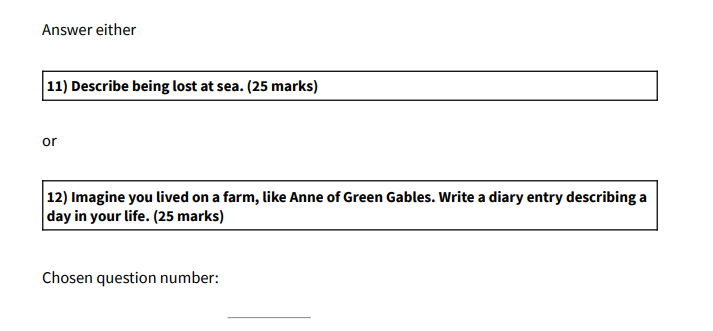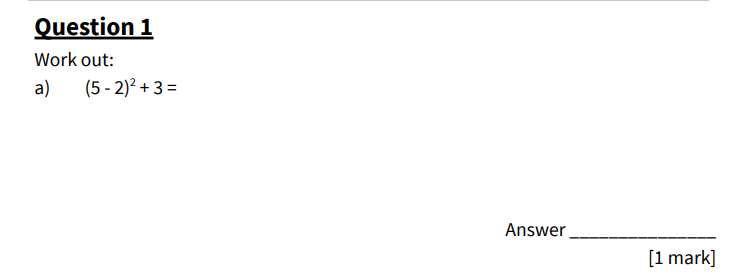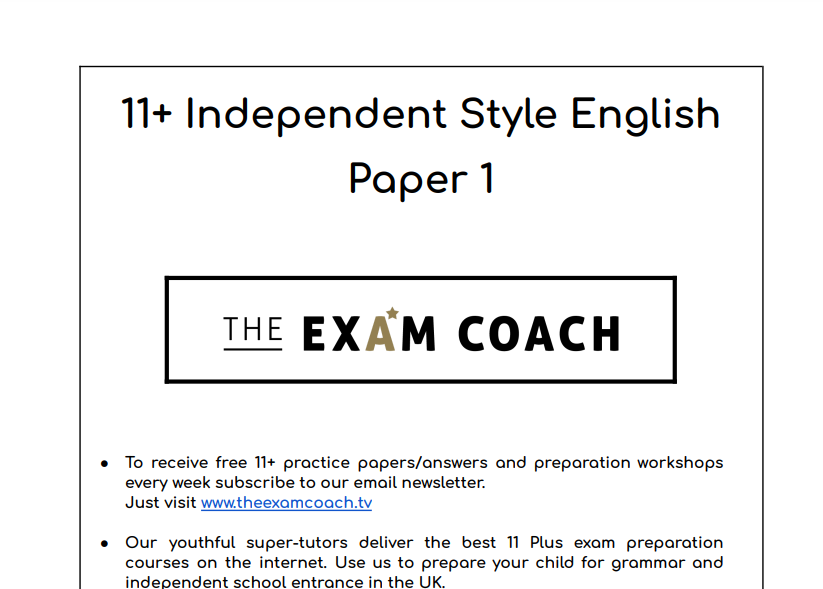Why Do most Independent schools create their own Entrance exams?
Most UK independent schools (also known as private schools) create and organise their own entrance exams. Some work with external exam boards (such as GL Assessment and CEM) but the majority have chosen to make their own entry test.
Ultimately, this makes the exam more varied year after year. Different topics and subjects, picked by the school, can be set each year. That said, there some core features of independent school papers which remain consistent across all schools (these will be discussed later in this blog post). Furthermore, schools are able to mark their own exam papers, set their own pass marks and make individual judgements on each child’s exam paper.
This is just one part of the independent school entry process. Each independent school has its own unique admissions process (with most requiring applications to be completed by October/November of the year before entry). However, some more oversubscribed schools in areas such as central London often ask parents to apply up to four years in advance!
Independent schools tend to focus on four key subjects for the 11 Plus:
English
Mathematics
Verbal Reasoning
Non-Verbal Reasoning
Grammar VS Independent School 11+ Exams
Exam content and subject choice are very similar between UK grammar and independent schools. However, the exam and question styles are often very different.
Firstly, as explained above, most independent schools tend to write their own 11+ entrance exams. Grammar schools (with a few exceptions) use various 11+ exam boards to set their entry tests each year. Therefore, there is a greater variety in topics covered and question styles in independent school exams.
While most grammar school entry exams tend to consist of multiple-choice papers, independent schools use standard answer (also known as written answer) questions. This is because grammar school exam boards use optical readers to mark exam papers, whereas independent school papers are marked by people (usually teachers at the school).
ENGLISH INDEPENDENT SCHOOL 11+ EXAMS
Independent school English exams use standard answer questions, requiring students to write all or most of their answers in full sentences and paragraphs.
Similar to grammar school exams, there is almost always a comprehension exercise. However, independent schools are known to present more difficult texts and questions in their exams. An independent school exam tends to place more focus on understanding and interpreting the meaning of a text or author, especially when studying a classic text. A wide vocabulary, as well as excellent inference skills, are needed to do well in this exam.
There are usually no questions that directly test spelling, punctuation and grammar knowledge in an independent school English exam. This is because longer written answer questions require students to write in correct and accurate English. Marks can be awarded and lost for use of spelling, punctuation and grammar in most answers.
Finally, almost all independent schools include a creative or persuasive writing section as part of their English exam. Some grammar schools also have a writing exam; the results of this exam are often taken into account in order to determine closely contended spaces. The marking for this exam will always be done by a teacher.
Therefore, developing your child’s creative and persuasive writing skills can be key to succeeding in an independent school’s English exam.
Take a look at some of the best 11+ creative and persuasive writing answers Exam Coach students have produced by clicking here.
Mathematics INDEPENDENT SCHOOL 11+ EXAMS
Independent schools also use standard answer questions in their mathematics exams.
11+ mathematics exams for independent schools include longer, more detailed questions with multiple parts. Questions are often worth multiple marks, with marks awarded for clear workings as well as the correct answer.
Overall, independent school mathematics exams tend to include fewer, but more difficult, questions than other 11+ mathematics exams. The majority of the questions in these exams will align with the Key Stage 2 curriculum (up to and including Year 6). However, some independent schools are known to include a few tricker questions at the end of the paper. These will include content that students have not been taught at school, requiring them to use their existing mathematics knowledge and logical skills to find the answer. This is done in order to single out the very best and most gifted young mathematicians.
VERBAL REASONING INDEPENDENT SCHOOL 11+ EXAMS
Verbal reasoning exams do not tend to differ much between grammar and independent schools. Most independent schools buy their reasoning tests from the same exam boards as grammar schools (namely GL Assessment, CEM or ISEB) meaning they sit the same exam.
Verbal reasoning papers are always multiple choice, with 4-5 possible answers per question. Verbal reasoning exams test skills including:
Processing verbal information
Similarities and differences between words
Vocabulary knowledge
Applying logical thinking and problem-solving skills
Identifying patterns and demonstrating the understanding of rules
Meanings of language
If your child needs help developing their verbal reasoning skills, please join us for our weekly verbal reasoning free taster sessions. You can sign up for this week’s workshop here.
NON-VERBAL REASONING INDEPENDENT SCHOOL 11+ EXAMS
Lastly, non-verbal reasoning testing is not common among independent schools. There are currently no independent schools in England which create their own non-verbal reasoning exam.
Similarly to verbal reasoning, most independent schools that test non-verbal reasoning buy their tests from the same exam boards as grammar schools, this means children will sit the same type of exam.
Non-verbal reasoning papers are always multiple choice, with 4-5 possible answers per question. Non-verbal reasoning exams test skills including:
Processing graphic information
Following patterns or rules
Applying mathematical skills (such as rotation, reflection and symmetry)
Use of spatial awareness
Applying logical thinking
Problem-solving skills
How to Prepare Your Child For The 11 Plus at an Independent School
The Exam Coach’s 11 Plus practice papers and answers are available free of charge to help your child prepare for their 11 Plus exams at UK independent and grammar schools. Here are a few papers to get you started:
INDEPENDENT ENGLISH PAPER 1
INDEPENDENT MATHEMATICS PAPER 1
You can find specific information and 11+ preparation resources for your chosen independent school by searching for your school in the search bar below.
For more 11+ help, advice, resources and a new 11+ practice paper every week, sign up to our email newsletter below.
Did you find this article helpful? Let us know in the comments below






